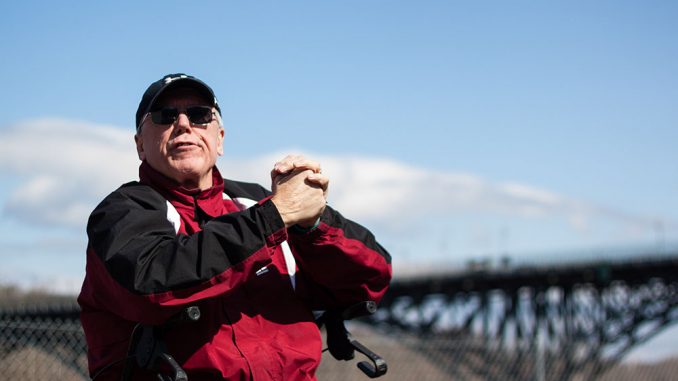
Their oars began clanking together as they navigated a turn on the racecourse, alongside five other boats at the Head of the Schuylkill Regatta last fall.
But the Owls crashed – twice.
In the first racing competition of their rowing career, the novices on the women’s rowing team found themselves in a bind on a 6,000-meter racecourse in October 2013.
Five months later, the women’s Novice 8 and Novice 4 both earned their first victory of the season when they went head-to-head against Bucknell and Duquesne last Saturday.
In March, the Novice 8 boat on the women’s team and the Novice 4 boat on the men’s team both earned silver medals ahead of some of the nation’s top programs – including Virginia and Drexel – at the Murphy Cup in March.
“The coaches have been nothing but helpful in shaping us into rowers,” freshman Rachael Braccia said. “This is a sport some of us, my fellow novices, have never done before. I have never picked up an oar. To look back at it, sitting in a boat that I have never seen before, never touched before and then splitting a silver medal and being second out of 15 teams is unbelievable.”
Throughout the fall, the novices on both the men’s and women’s teams invested much of their time to learn more about the sport, while their coaching staff taught some of the techniques required for success both on the ergometer – an indoor rowing machine – and in the boat. The women’s team receives several walk-ons, as the team holds open tryouts in the fall.
Freshman Sydney Garofolo said the novices spent much of the time in the erg room learning some of the basic steps for techniques like the catch, finish and recovery.
The catch pertains to bringing your knees up leading to a compressed position.
“At the catch, your goal is to get to at a controlled rate and then drive your leg down and drive your hips backwards without opening up your back,” Garofolo said.
The next position, the finish, involves extending the legs, leaning back and using your hands to pull the oars. The recovery includes swinging your body forward.
Garofolo said assistant coach Mariana Folco, volunteer assistant Andrew Grzybowski and graduate assistant Taylor Wasserleben helped guide her in the right direction.
“They really did a good job of explaining it to us,” Garofolo said. “We didn’t go out on the water right away. We used the erg machine for quite some time till we had the basics of the techniques. I don’t think getting the basic steps down was the hardest part. Putting the steps together in a full motion was probably the hardest part about it.”
After each individual learned the techniques, Braccia said the team applied them in the boat with four or eight other women.
“In all points of those three steps [finish, recovery and catch] in the stroke you have to be completely locked on with the person in front of you,” Braccia said. “We swing our bodies over together, get our hands out together and we start to break our knees to come up together and on our drive, drive all at the same time so we can get maximum power and maximum speed by all getting our blades in at the same time. So basically every motion that you do with your body has to mimic the person in front of you.”
Men’s novice TJ Kuhar said when he first came in the fall, he was surprised by how tough rowing was after playing basketball and football in high school. He credits assistant coaches Gus Goettner and Brian Perkins for his improvement.
“The hardest part on the water is just how technical you have to be with everything because the littlest thing can throw the boat off,” Kuhar said.
Coach Gavin White said he is happy with the improvements the novices have made since the fall.
“The biggest thing is that they have become more posed,” White said. “They have matured a lot.”
After winning their first medals of the season, the novices said they still have a lot to work on.
“I learn things every day,” Braccia said. “There is always something that I can fix.”
Danielle Nelson can be reached at danielle.nelson@temple.edu or on Twitter @Dan_Nels.


Be the first to comment